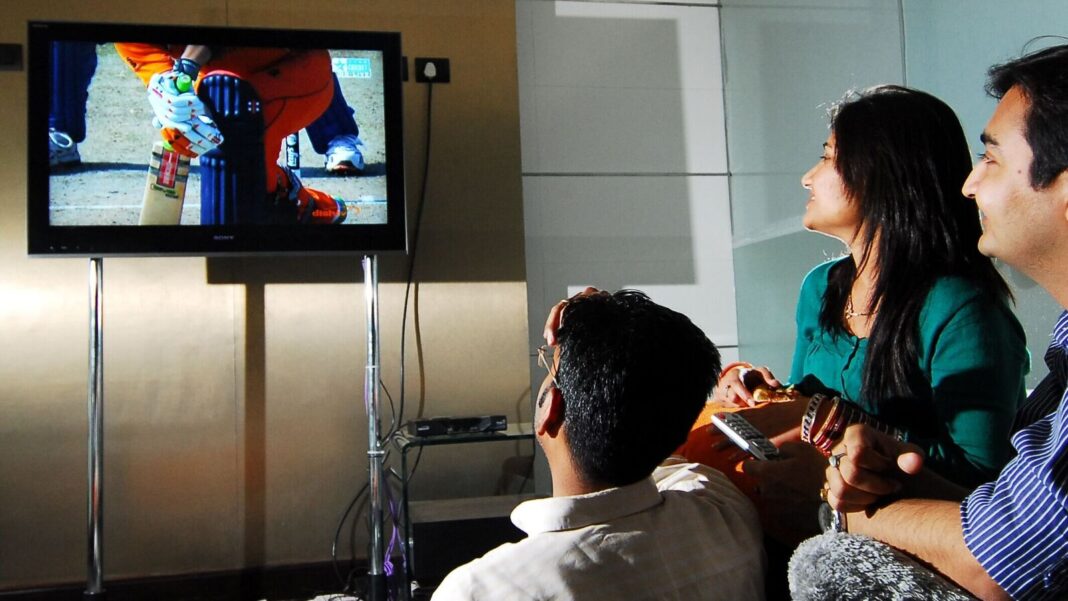In Short:
Producers are struggling to sell satellite rights for films, even hits, due to declining TV viewership caused by streaming platforms. Many successful movies like “Kalki 2898 AD” have no deals yet. Advertising revenue is also down, making high prices for satellite rights unviable. Satellite rights, once lucrative, have fallen significantly in value as audiences shift to OTT services.
Producers are finding it increasingly tough to sell satellite rights, even for films that perform well at the box office. The culprit? A significant drop in television viewership, primarily due to the strong allure of streaming platforms.
According to executives from the broadcast industry, even movies that achieve theatrical success are failing to attract audiences during their television premieres or later airings. This has resulted in a noticeable decrease in advertising rates, making it hard for producers to justify the lofty prices they are asking when selling satellite rights. Films like Kalki 2898 AD and Stree 2, despite their box-office successes, are still waiting to finalize satellite TV deals.
It seems television has taken a backseat in the hierarchy of content consumption, now trailing behind popular streaming platforms like Netflix, Amazon Prime Video, and ZEE5.
“The reality is that broadcasters are struggling to recoup the prices paid for movie premieres, especially since films are often screened on OTT first. All the excitement has faded, and there’s a genuine need to reassess pricing,” shared a senior executive at a broadcast network, wishing to remain anonymous. This insider noted that the rates producers are requesting—often more than ₹10-15 crore—are simply not sustainable. Channels are finding it tough to recover even 30-40% of these costs from advertising. “There just isn’t enough money in the market to monetize,” the executive lamented.
Once a Lucrative Revenue Source
It’s worth noting that satellite rights used to be a significant revenue stream for both actors and filmmakers. Just a few years ago, television networks were sealing deals with major stars like Salman Khan, Ajay Devgn, and Hrithik Roshan for upwards of ₹300 crore for a fixed number of upcoming films. These arrangements were possible because actors negotiated reduced fees with producers in exchange for handling movie supply to the channels. However, as TV channel ratings plummet, the price for film rights has dropped by 30-40% over the past few years. Many broadcasters that also operate streaming platforms, such as Star and Zee, now prefer launching new titles on OTT first. Foreign competitors like Netflix and Amazon Prime Video are also investing heavily in digital premieres.
Mukesh Mehta, founder of E4 Entertainment, a Malayalam film production and distribution company, echoed the sentiment, highlighting that the satellite rights market is struggling as most viewers have migrated online. “Advertising rates hinge on viewership ratings, which is why satellite rights are particularly tricky at the moment,” Mehta explained.
When it comes to Hindi films, broadcasters are reporting that mid-budget, experimental, and slice-of-life titles have been losing favor with family audiences in recent years. While some films, like Badhaai Ho and Queen, enjoyed box office success, especially in metropolitan areas and multiplexes, they aren’t proving to be a lifeline for broadcasters looking to engage single TV households across India.
“The overall market sentiment is quite dismal. Advertisers, operating within tight budgets, are reluctant to pay substantial amounts for movie premieres, opting instead to invest in blockbuster reality shows and other types of content,” said film producer and trade expert Girish Johar.





